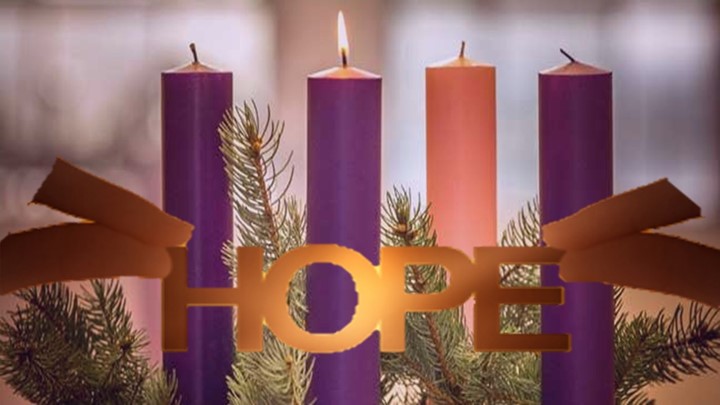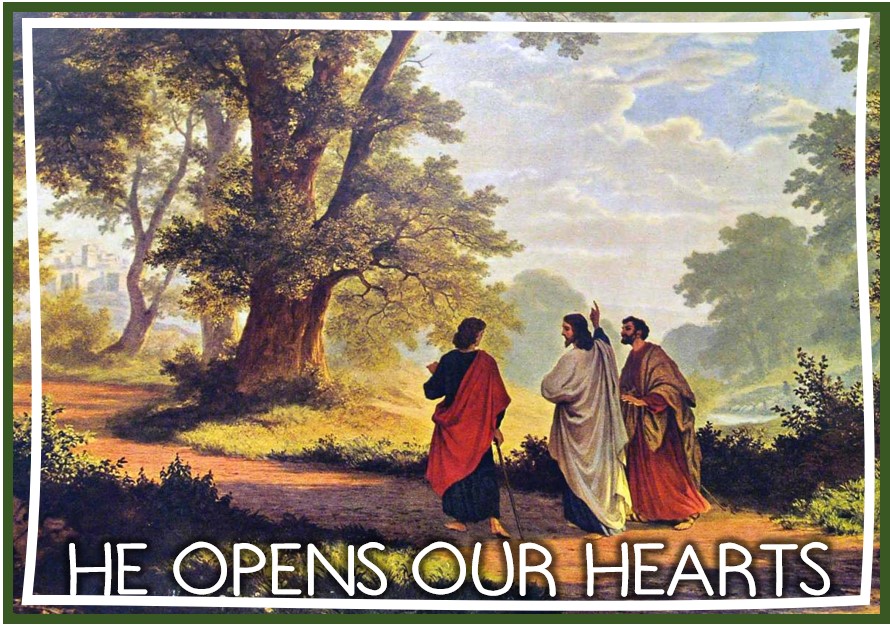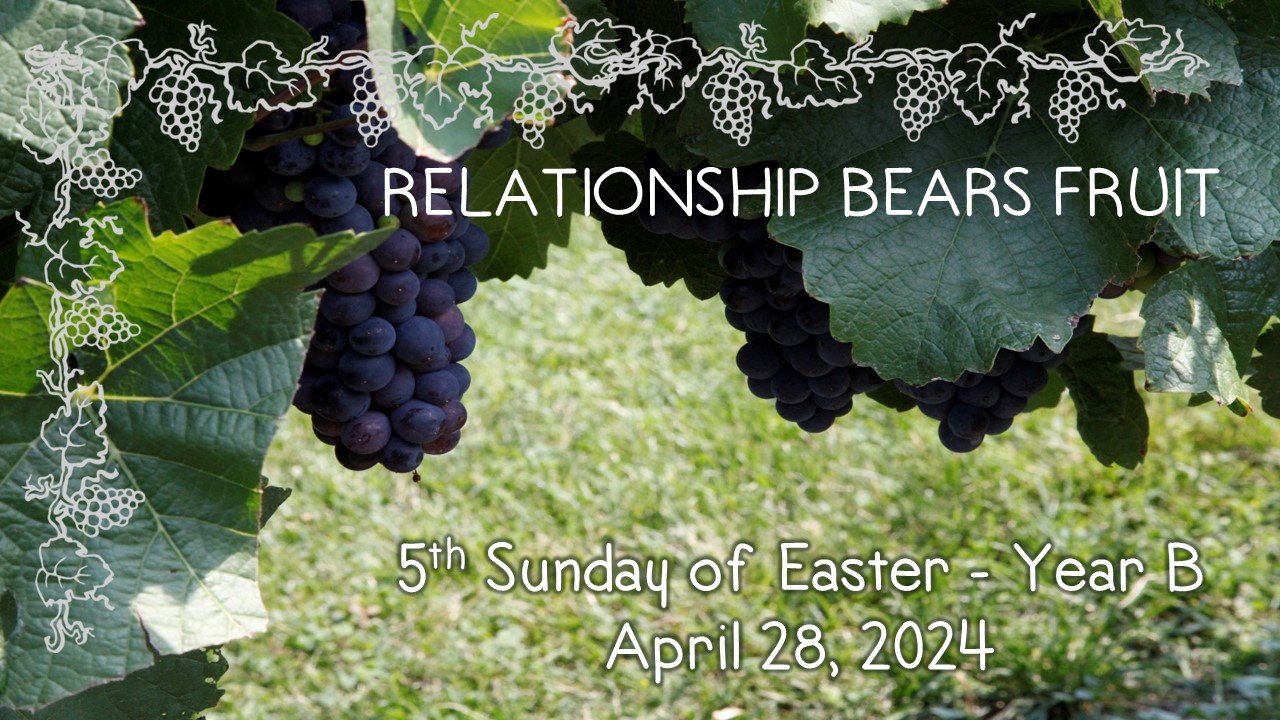
First Sunday of Advent Year A ~ November 27, 2022
HOPE KEEPS US AWAKE
This week we begin our Advent season to prepare ourselves to celebrate the miraculous birth of Our Lord Jesus Christ. Advent is the time we are given to welcome the Lord who comes to encounter us, and to verify our longing for God, to look forward and prepare ourselves for Christ’s return. He will return to us in the celebration of Christmas, when we will remember his historic coming in the humility of the human condition; but he enters our heart each time we are willing to receive him; and he will come again at the end of time to “judge the living and the dead”. Therefore, we must always be vigilant and await the Lord with the hope of encountering him.
Advent season has two parts: First part (which is from 1st Sunday of Advent to December 16) addresses the importance of the second coming of Jesus. All the readings are focused on the preparation to welcome Jesus with hope, in our midst. Jesus always reminds us He is with us as he carries his name Emmanuel. Second part of Advent (which is from December 17 to 24) emphasis on the importance of Jesus’s first coming through the prophecies we find in the Bible. Moreover, we are also reminded that our Salvation is at hand, and we need to rejoice in the Lord who was, who is and who is to come.
These four Sundays of Advent speaks about four Gospel values: Hope, Peace, Joy and Love. Each Sunday one candle is lit which symbolizes the light of Christ because Jesus is our Light and we need to walk in the light of Christ. The liturgical color during Advent is Purple which is the symbol of hope in the second coming of Christ and Repentance. Today as we light our first Advent candle, we reflect on the theme “Hope” which keep reminding not to lose our hearts but trust in the Lord. Our Hope keeps us awake to believe and trust in the Lord and make him the center of our life. Let me share a story with you to help us understand that without Jesus our eternal Sun, there is no life, nor hope.
Once, there was a farmer who was tired of various natural factors ruling the quality of his crop. So, one day he called God and said, “I am tired of all this natural nonsense happening. Obviously, you are not a farmer. You don’t know what it means to farm so why don’t you leave nature in my hands? I am a farmer. I know when it should rain, I know when there should be sunlight, everything is happening at the wrong times. You leave it to me.”
Whether you have a good deal or a bad deal, whatever the situation is, it’s very useful you use that for your wellbeing.
God said, “Okay, nature is in your hands.” Then the farmer planned his crop. So, he calls out “Rain!” And it rains. He pokes the land with his finger and sees, “Okay it’s soaked up to six inches,” “Stop!” Then he ploughed his field and planted corn seeds and waited for two days, “Rain!” then “Sunlight!” One day he was working in the field so he wanted some shade to work in, “Cloud!” Everything just happened the way he wanted, and a beautiful corn crop came. He was overjoyed.
When it was time for the harvest, he wanted to see that no birds came. He was surprised about that because when he said, “No birds!”, and no birds came. He went down to his fields to harvest the corn but when he looked at the crop, there was no grain on the plants. Then he thought “What is this? What did I do wrong?” He couldn’t figure it out because he had managed everything – rain, water and sunshine. He went back to God and asked, “I did everything right but there is no grain. Did you sabotage my crop?” God said, “I have been watching; you were in-charge, so I didn’t want to interfere. The rain was great, the sunshine was great, everything was fine, but you stopped all the winds. I used to always send fierce winds which would threaten your crop but because the plants felt pushed and threatened, they put their roots deeper into the earth and so grain happened. Now you have a great corn crop but no corn.”
As the corn crop used the winds to strengthen themselves, various situations in our life can either be used, to make ourselves stronger and better or we can sit and cry. This is the choice we have. All these things move around the element of hope and hope for the good to come. St. James says in his letter never say “we will do” but say, “God willing we will do”.
Saint Macarius, helps us dwell in the Lord through hope which awakes us to believe that Jesus Christ is the reason of the season. He says “When God was displeased with the Jews, he delivered Jerusalem to the enemy, and they were conquered by those who hated them; there were no more sacrifices or feasts. Likewise angered at who had broken his commands, God handed it over to its enemies, who corrupted and totally dishonored it. When a house has no master living in it, it becomes dark, vile and contemptible, choked with filth and disgusting refuse. So too is a soul which has lost its master, who once rejoiced there with his angels. This soul is darkened with sin, its desires are degraded, and it knows nothing but shame. Woe to the path that is not walked on, or along which the voices of men are not heard, for then it becomes the haunt of wild animals. Woe to the soul if the Lord does not walk within it to banish with his voice the spiritual beasts of sin. Woe to the house where no master dwells, to the field where no farmer works, to the pilotless ship, storm-tossed and sinking. Woe to the soul without Christ as its true pilot; drifting in the darkness, buffeted by the waves of passion, storm-tossed at the mercy of evil spirits, its end is destruction. Woe to the soul that does not have Christ to cultivate it with care to produce the good fruit of the Holy Spirit. Left to itself, it is choked with thorns and thistles; instead of fruit it produces only what is fit for burning. Woe to the soul that does not have Christ dwelling in it; deserted and foul with the filth of the passions, it becomes a haven for all the vices. When a farmer prepares to till the soil, he must put on clothing and use tools that are suitable. So, Christ, our heavenly king, came to till the soil of mankind devastated by sin. He assumed a body and, using the cross as his ploughshare, cultivated the barren soul of man. He removed the thorns and thistles which are the evil spirits and pulled up the weeds of sin. Into the fire he cast the straw of wickedness. And when he had ploughed the soul with the wood of the cross, he planted in it a most lovely garden of the Spirit, that could produce for its Lord and God the sweetest and most pleasant fruit of every kind”.
The Holy Father encourages everyone with these words: “The person who takes heed is the one who, amid the worldly din, does not let himself be overwhelmed by distraction or superficiality, but lives in a full and conscious way, with concern first and foremost for others. With this manner we become aware of the tears and the needs of neighbours, and we can also understand their human and spiritual strengths and qualities. The heedful person then also turns toward the world, seeking to counter the indifference and cruelty in it, and taking delight in its beautiful treasures which also exist and are to be safeguarded. It is a matter of having an understanding gaze to recognize both the misery and poverty of individuals and of society, and to recognize the richness hidden in little everyday things, precisely there where the Lord has placed us”.
Saint Cyril of Jerusalem, invites us to reflect with him on the “Comings” of Jesus to prepare ourselves to celebrate the festivities of Nativity of the Lord. “We do not preach only one coming of Christ, but a second as well, much more glorious than the first. The first coming was marked by patience; the second will bring the crown of a divine kingdom. In general, whatever relates to our Lord Jesus Christ has two aspects. There is a birth from God before the ages, and a birth from a virgin at the fullness of time. There is a hidden coming, like that of rain on fleece, and a coming before all eyes, still in the future. At the first coming he was wrapped in swaddling clothes in a manger. At his second coming he will be clothed in light as in a garment. In the first coming he endured the cross, despising the shame; in the second coming he will be in glory, escorted by an army of angels. We look then beyond the first coming and await the second. At the first coming we said: Blessed is he who comes in the name of the Lord. At the second we shall say it again; we shall go out with the angels to meet the Lord and cry out in adoration: Blessed is he who comes in the name of the Lord. The Savior will not come to be judged again, but to judge those by whom he was judged. At his own judgment he was silent; then he will address those who committed the outrages against him when they crucified him and will remind them: You did these things, and I was silent.
His first coming was to fulfill his plan of love, to teach men by gentle persuasion. This time, whether men like it or not, they will be subjects of his kingdom by necessity. Malachi the prophet speaks of the two comings. And the Lord whom you seek will come suddenly to his temple: that is one coming. Again, he says of another coming: Look, the Lord almighty will come, and who will endure the day of his entry, or who will stand in his sight? Because he comes like a refiner’s fire, a fuller’s herb, and he will sit refining and cleansing. These two comings are also referred to by Paul in writing to Titus: The grace of God the Savior has appeared to all men, instructing us to put aside impiety and worldly desires and live temperately, uprightly, and religiously in this present age, waiting for the joyful hope, the appearance of the glory of our great God and Savior, Jesus Christ. Notice how he speaks of a first coming for which he gives thanks, and a second, the one we still await.
That is why the faith we profess has been handed on to you in these words: He ascended into heaven and is seated at the right hand of the Father, and he will come again in glory to judge the living and the dead, and his kingdom will have no end.
Our Lord Jesus Christ will therefore come from heaven. He will come at the end of the world, in glory, at the last day. For there will be an end to this world, and the created world will be made new.
The Holy Father Pope Francis shares his reflection on this Sunday with these precious words. The Lord is coming; today, the first day of the liturgical year, this announcement marks our starting point: we know that, despite any favourable or contrary event, the Lord will not leave us alone. He came two thousand years ago and will come again at the end of time, but He comes also today in my life, in your life. Yes, this life of ours, with all its problems, anxieties, and uncertainties, is visited by the Lord. Here is the source of our joy: the Lord has not grown tired and will never tire of us, He wishes to come, to visit us. Indeed, in the first reading Isaiah prophesied: “Many peoples shall come and say, ‘Come, let us go up to the mountain of the Lord”. While the evil on earth comes from the fact that each one follows his own path without the others, the prophet offers a wonderful vision: all come together on the mountain of the Lord. On the mountain was the temple, the house of God. Isaiah therefore sends us an invitation from God to His home. We are God’s guests, and whoever is invited is expected, desired. “Come”, God says, “because there is room in my house for everyone. Come, because in my heart there is not only one people, but every people”. While our hope awakes to recognize the Lord, it also helps to believe and prepare that Lord will with is power and might to deliver everyone from the evil forces. For Him we are never strangers, but anticipated children. And the Church is the house of God: here, therefore, always feel at home. Here we come to walk together towards the Lord and realize the words with which the prophecy of Isaiah ends: “Come, let us walk in the light of the Lord”.
What happened in Noah’s days? It occurred that, while something new and upsetting was about to arrive, no-one cared, because everyone thought only of eating and drinking. In other words, they all reduced their lives to their own needs; they were content with a flat, horizontal life, without momentum. There was no waiting for anyone, only the claim of having something for oneself, to consume. Waiting for the Lord to come, not claiming to have something we can consume. That’s the reason Lord warns everyone to “be awake and be ready for the day” which is coming. In fact, our hope helps us to prepare to welcome Jesus.
Once there was a very old couple who enjoyed their married life for almost 70 years with beautiful children, grand children, and great grand children. One fine night husband decided to tell her something. So late that night, just before she fell asleep, he whispered in her ear. She smiled – the kind of smile that made him smile back –and she said, “Now I’m ninety-five and I think about my life and what it was like to be young, I hope that I can remember this very moment.” A few seconds later she closed her eyes and fell asleep. The room was peaceful – almost silent. All he could hear was the soft purr of her breathing. He stayed awake thinking about the time they had spent together and all the choices in their lives that made this moment possible. And at some point, he realized that it didn’t matter what they had done or where they had gone. Nor did the future hold any significance. All that mattered was the serenity of the moment. The same moment of hope and serenity we experience during the season of Advent where we feel the presence of Jesus who is our Hope which keeps us awake to prepare for the Second Coming of Jesus.
Other Sermons In This Series

3nd Sunday of Easter Year A ~ April 23, 2023
April 21, 2023

5th Sunday of Easter – Year B ~ April 28, 2024
April 25, 2024
21st Sunday in Ordinary Time – Year A ~ August 27, 2023
August 25, 2023

